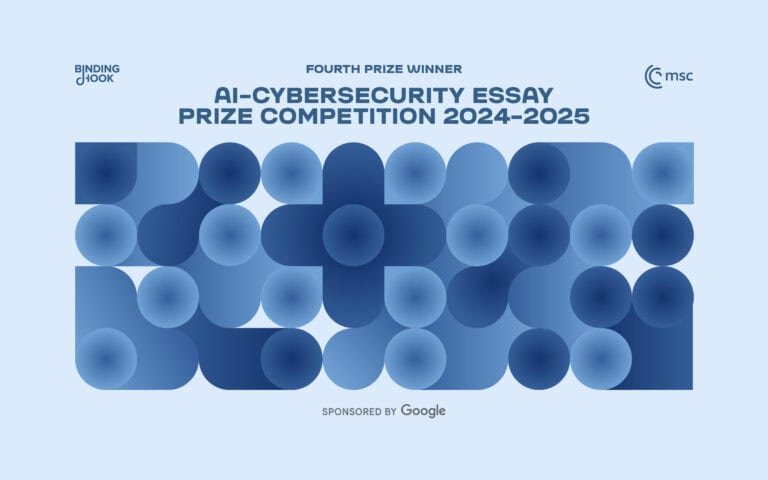Covert Hops

Whatever you do or don’t celebrate, the holidays are a good time to sit down and catch up with some reading over a festive beverage. We can recommend Binding Hook for the reading, but what about the beverage?
This festive season, we bring you a guide to technology-themed beers. With over 10,000 breweries in Europe and a similar number in the US–many pumping out tens or even a hundred or more uniquely named beers a year–there has been great scope for beers with a security technology theme.
The beers are explored in four technological areas: cybersecurity, space, nuclear, and black projects. Each has a DIY guide featuring a hopefully more obtainable beer to ward off any holiday boredom.
Sauce code
Cybersecurity and beer increasingly go hand in hand. In recent years, several macro breweries, including Portugal’s Super Bock, US-headquartered Molson Coors, and Australasia-based Lion beverage company, have been the targets of hackers. Heineken even referenced “cyber warfare” as a risk in its 2022 annual report.
Beyond the macros, some smaller breweries have also embraced the cyber theme—at least in their beer names. Arvon Brewing Co. in Michigan produces a Cyberwarfare Double IPA (DIPA) (“crisp and clean” according to one drinker, like a malware-free computer), and Brewdog makes a Cybernaut Session IPA (“sessionable”, unlike most cyber security training). Tesla produced a limited edition Cyberbeer to commemorate the new Cybertruck, which received rave reviews.
There remains ample untapped potential for the cyber beer theme. Understandably, malware, virus, or worm-related names might appear unappealing (that’s why we avoided a chemical and biological weapons-related section — although there are clear connections between brewing equipment and these production technologies, as the export of a British brewery to North Korea twenty years ago highlighted). However, it’s a shame nobody seems to have made a Zero Day ABV alcohol-free beer.
Live it for yourself: Crack open a bottle of Hacker Pschorr Münchner Gold German Helles Lager (“smooth” – OK, it was first brewed decades before Alan Turing was even born) and imagine you’re at DEFCON preparing for the now-defunct beverage cooling competition.
Of atoms and ales
Nuclear weapons and alcohol have links dating back to the earliest years of the atomic age. Revellers would crowd rooftop bars in Las Vegas to view the open-air testing at the Nevada Test Site less than a hundred miles away, blissfully unaware of the radiation being spread into the atmosphere. “Atomic” cocktails were the order of the day in Vegas and a few years earlier at Los Alamos, where Oppenheimer made a signature martini (Oppie didn’t like the hoppy stuff).
In recent years, campaigns for human and environmental justice in the nuclear space have called out one US-based brewery for insensitivity after naming a gose Bikini Atoll. The health minister of the Marshall Islands described the beer as an “ill-conceived product”.
The nuclear theme has been used to evoke intensity. Tactical Nuclear Penguin by Scottish brewer Brewdog was, for a short period from 2009, the strongest beer in the world (32% ABV — “very intense” as a reviewer put it). Its record has been beaten a number of times since, including by an aptly named Armageddon (65% ABV — “more drinkable than expected”), offered by another Scottish Brewery.
Live it for yourself: Crack open a Sierra Nevada Atomic Torpedo (“juicy and piney”, and yes there has been — and unfortunately still is — such an eponymous object), and imagine you’re a seasoned weapons inspector sitting in the bar of the Vienna International Center, which hosts the IAEA, surrounded by awkward physicists, weapons experts, and insufferable think tank types.
To the Big DIPA and beyond
Space and space exploration provides ample inspiration for brews and brand names. Indeed, a number of hop varieties have space-like names, from the more commonly used, such as Galaxy, to more obscure varieties, including Apollo, Aurora, Comet, Equinox, and Southern Star. Beer has even been brewed using yeast sent to space — an imperial stout named Ground Control by Oregon-based Ninkasi Brewing (“rich, boozy and chocolatey”).
Space has inspired breweries and beers, such as Burlington, Vermont’s Zero Gravity and Allagash’s North Sky Stout (“smooth and toasty”).
Brewers have also drawn inspiration from both sides of the Cold War Space Race. The UK’s North Brewing has produced a Sputnik Pale Ale (“hazy and pillowy”) named in honour of the first human-made satellite. Celestial Beerworks in Texas produces an Apollo 11 DIPA (“hazy, juicy and dank”), evoking NASA’s successful 1969 mission to the lunar surface (alongside several other beers with space names: Andromeda, Cosmic Cantina, Lunar, One Giant Leap, and the wonderfully dubbed Newton’s Third Lager — named for his third law — to list a few).
Live it for yourself: Crack open an Elysian Brewing’s Space Dust IPA (“hoppy and sweet”) and imagine you’re in the Outpost Tavern in Houston, just down the street from NASA’s Johnson Space Center –the closest you’ll get to a terrestrial Star Wars Cantina.
Projects as dark as stout
“Black projects”–and less clandestine defence efforts–have provided ample inspiration for brewers. Secrecy has always captured the imagination, and cutting-edge secretive defence equipment projects have enthused analysts, historians, hobbyists, and conspiracy theorists alike.
A couple of breweries have embraced this theme. The now-defunct Black Project Spontaneous and Wild Ales had beers named Blackbird after the SR-71 spyplane (“funky and sour”), Oxcart named for the Lockheed A-12 predecessor to the SR-71, and Hypersonic evoking the much-hyped emerging technology. Following the national security theme, the brewery also had an Agent Bottle Club and beers such as Glomar, named after the ‘Glomar response’ and the mission to recover a Soviet submarine, and Raven Rock, named for the government bunker complex in Pennsylvania.
The SR-71 and the A-12 were both products of the Lockheed Skunk Works, a legendary California-based aircraft research, development, and production facility that was also responsible for other notable aircraft, such as the U-2 spy plane, the F-117 Nighthawk, the F-22 Raptor and F-35 Joint Strike Fighter (as well as several X-planes, and probably a fair few UFO sightings around Area 51).
With a hat-tip for the play on words, Florida-based Skunkworts Brewing Concern (wort is the liquid extracted from grains during the mashing process) also draws inspiration from this opaque part of the military-industrial complex. It has some aviation-related beer names, such as Bird Strike (“hoppy and earthy”) and Fuel Dump, as well as aircraft, such as Dragon Lady after the U-2. It also has an F-4 Phantom jet engine at the taproom.
Live it for yourself: Crack open a Missile IPA (“hoppy and bitter” — if you can’t find the fantastically and festively named Missile Toad) and mull over the fact that even regular ballistic missiles technically travel at hypersonic speeds. And if any family member looks at you quizzically and asks what you are doing, Glomar them.
Binding Hook wishes everyone a happy and hoppy holiday season. Cheers!




